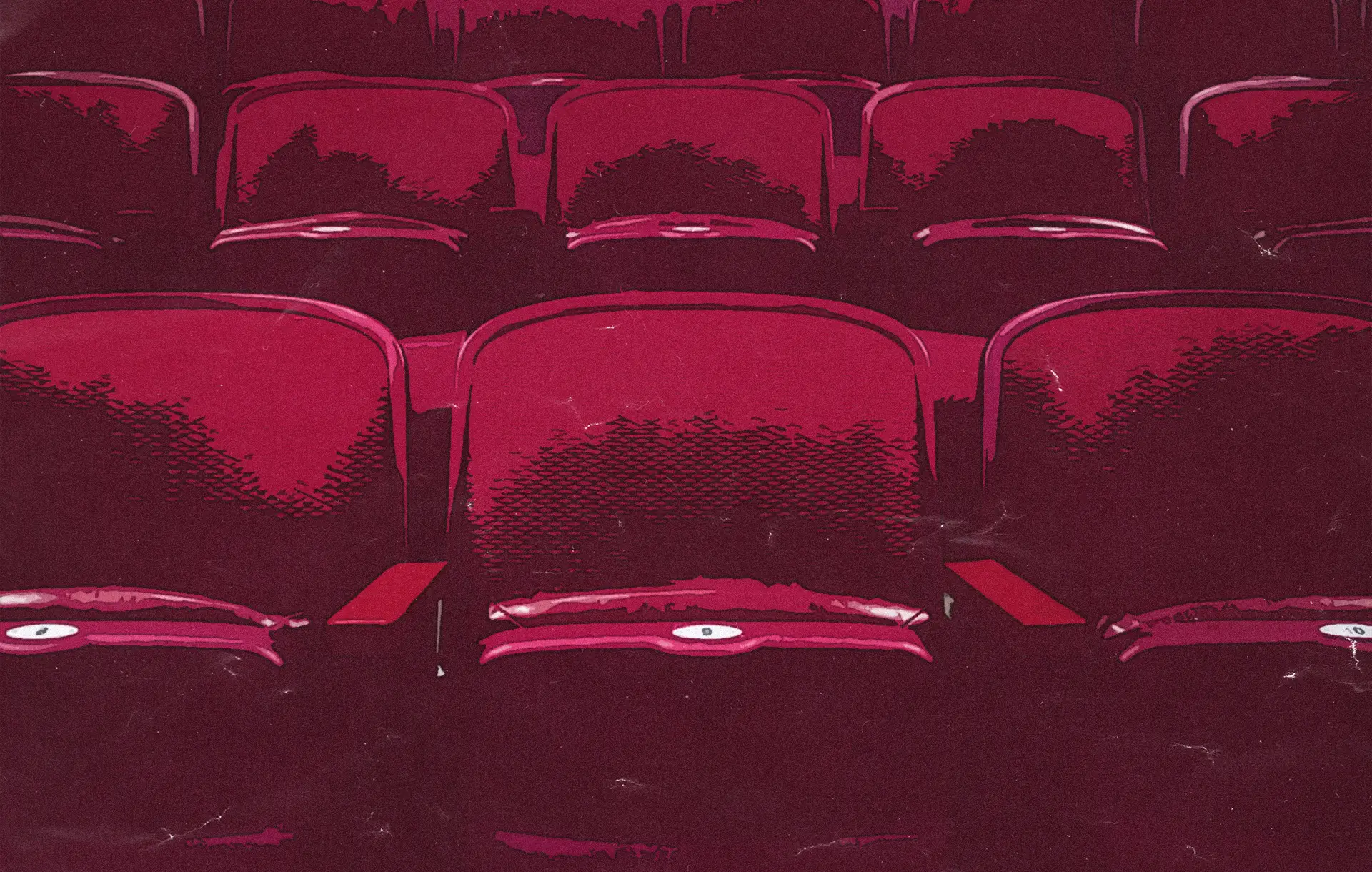Are film critics, and other writers who write about the pop culture “out of touch” and “living in a bubble?” That’s been the basis of a lot of discourse in recent weeks and months.
There have been a series of “controversies” in which there’s a major disparity between the critic and audience scores for certain movies, especially ones involving superheroes. There’s the pattern of movies that earn rave reviews and win critics awards and eventually Oscars being the ones that most of the general public has never heard of. And this is blamed for everything from low ratings for the Oscars to even, implicitly, bad election results for the Democratic Party.
There’s always going to be some difference between how critics see things and how the general public does. Critics have made a life and career out of this, and are going to approach things differently than those who watch movies recreationally. They have likely seen many more of them, for one thing.
And really, that’s okay. I don’t think the views of critics and the public need to match each other, and I don’t know where the idea came from that they should. When I give a movie a bad review, I have no issue with non-critics (or other critics) disagreeing with me. We can agree to disagree.
But there’s something else going on, especially in a different sector of pop culture media.
Analysis of Cringe
It’s a pretty common occurrence these days for someone on a popular website letting loose with a bizarre movie hot take. Probably 8 times out of 10, it involves a young person seeing an older movie for the first time and calling it either “problematic” or just flat-out hating it.
There was such an instance at the end of December. A piece in Vox argued that “so much Obama-era pop culture feels so cringe now.” The piece, by Constance Grady, stated that some of the most popular pieces of the pop culture of fewer than ten years ago are allegedly now fallen.
“Sunny, wholesome, nominated-for-16-Emmys Parks and Recreation is now widely considered an overrated and tunnel-visioned portrait of the failures of Obama-era liberalism. Iconic and beloved Harry Potter is the neoliberal fantasy of a transphobe. Perhaps most dramatic of all is the rapid fall of Hamilton and its creator and star, Lin-Manuel Miranda, whose reputation is now one of embarrassing earnestness.”
As pointed out by, well, the majority of Film Twitter, this is nonsense. All three of those things remain extremely popular. Hamilton is playing all around the world, while Lin-Manuel Miranda wrote scores for three musical movies, including the popular Disney movie Encanto while directing a fourth. He’ll get the EGOT if one of the songs from Encanto wins Best Original Song.
Parks & Recreation, in its current streaming incarnation, is likely watched by more people now than it was when it aired on NBC. And Harry Potter remains a multimedia colossus, with most people in the world completely unaware of the J.K. Rowling controversy.
Those things have become “cringe” among a certain subset of too-online young people who live on Twitter all day, people who aren’t in any way representative of the general public. But of course, everyone across the political spectrum agreed that it was indeed “cringe” when Speaker Nancy Pelosi introduced a song from Hamilton as part of the January 6 commemoration in Congress.
The Vox piece was swiftly made fun of a lot, for good reason. But something else is important to point out there: If one person writes a ridiculous pop culture hot take, it means that… one person wrote a ridiculous pop culture hot take. It doesn’t mean that person’s opinion has become the law of the land. An op-ed in Vox arguing that a movie is problematic does not lead to that movie being banned, or ruined, nor does it mean that “they’re coming for” that movie. Sometimes a wrong opinion is just a wrong opinion.
Penetrating the Bubble
Probably the most widely-read pieces responding to Grady’s Vox piece — and other recent ones like it — came from The Atlantic’s Yair Rosenberg, a journalist writing in his newsletter called Deep Shtetl. Rosenberg, who normally writes about politics and the Middle East, goes through and points out that there hasn’t really been any loss in popularity for those people and shows.
“Obviously, none of these statistics tell you much about the moral merits of any position or argument put forward by Miranda, Parks and Recreation, or Rowling,” Rosenberg writes. “But they do tell you about the culture and its preferences. Yet the average person wouldn’t know most of this from consuming much of what passes for trendy internet cultural criticism.”
Of course, people writing “cultural criticism” in the vein of that Vox piece are a bit different from those who write straight reviews of movies — but of course, that cohort has its own sets of issues involving “bubbles.”
I agree about 80 percent with what Rosenberg writes. It’s important for critics to see outside of their bubble, and for them to have a good idea of what the general public likes.
Anyone who believes a critic must reflect the views of the public has not thought much about the purpose of criticism
– Roger Ebert
But I would argue that most film critics, at least, are perfectly aware of that — I know very few critics who don’t also pay close attention to the weekly box office, if not also whatever is in the Top Ten on Netflix at any given time. After all, these days, the jobs of “critic,” “box office analyst,” “awards prognosticator,” and “armchair industry reporter” are often done at the same time by the same person.
However, I also think it’s very important for critics to be honest, and not to pander. Because if they do, they’re sacrificing their credibility. If anyone is expecting critics to praise movies they don’t really like as part of an effort to relate better to the general public, they shouldn’t. The next time I express an opinion in a review that I don’t really believe will be the first.
Rosenberg quotes Roger Ebert, noting that the late popular critic “knew that most people who go to the movies are not looking for the next great work of cinema, but rather something with which to enjoyably pass an afternoon with their families.” And that’s certainly true of Ebert. But let me point you to another Ebert quote.
In a 1995 edition of his Movie Answer Man column, Ebert was asked by a reader if, after all those years of reviewing, his attitudes “may not reflect that of the public”?
His answer was illuminating, and something I’ve always taken with me as a critic:
“I have no interest in being objective or in reflecting the public’s opinion. A critic should not be a ventriloquist’s dummy, sitting on the knee of the public and letting it put words into his mouth. The only critics of any use or worth are those who express their OWN opinions, which the readers are then free to use or ignore. Anyone who believes a critic must reflect the views of the public has not thought much about the purpose of criticism.”
And That Goes for Critic Awards, Too
Throughout December and January, national and regional critics groups have been voting for and announcing their annual award winners. These awards are often seen as bellwethers for the Oscars and are thus quite sought after by studios and filmmakers.
One of those groups, the National Film Society of Critics, gave its Best Picture award to Drive My Car, an acclaimed Japanese film from director Ryusuke Hamaguchi. The same film had already won the top award from both the New York Film Critics Circle and The Los Angeles Film Critics Association.
That didn’t sit particularly well with veteran movie writer Roger Friedman. He described Drive My Car as “an almost three-hour Japanese film that most people know nothing about,” and went on to chastise the choice as “a big ‘f-you’ to American and British filmmakers and films made in English. It was the same to the larger film-going audience.”
Friedman also said that “the NSFC could have shaped the conversation about a group of films headed to the Oscars and struggling at the box office. But the message is ‘We’re so cool we don’t have to like anything you’re being offered.’ So why should anyone bother going to theaters if the critics say forget it?”
It’s a very ridiculous assertion, not to mention weirdly nativist. First of all, it’s not film critics or critics group’s job to help the box office. That should not inform the vote of anyone who votes for awards. But even if they did, Drive My Car… is part of the box office, unless we’re being jingoistic and not counting foreign language films.
Furthermore, most people who go to movies have also never heard of the NSFC, and the number of moviegoers who take their ticket-buying cues from critics groups is likely not a large one.
Furthermore, people in critics groups should vote for the movies they most want to win. I think it’s important for critics — whether in their writing or in who they vote for awards, to be honest while avoiding their bubbles. And it’s not that hard to find a way to do both at the same time.





